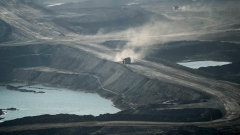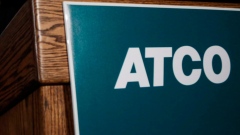Jul 11, 2023
Government extends public consultation on RBC-HSBC sale after not receiving some submissions
, BNN Bloomberg
No surprise RBC was the eventual bidding war winner: Moody's credit officer
The federal government is extending public consultations on Royal Bank of Canada’s proposed takeover of HSBC Canada for two additional weeks after some emailed submissions were lost due to technical difficulties.
Some Canadians who wrote to the Department of Finance to share their views on the pending $13.5-billion acquisition received emails on Friday informing them of the situation and asking them to re-submit by July 21, “to ensure we can hear from you and all interested Canadians.”
“Unfortunately, due to technical difficulties, we did not receive the content of some consultation submissions sent by email, including yours. Technical difficulties have now been resolved,” the emails from the government department read.
The messages also expressed “sincere apologies” for the issue.
“We very much want to hear your views and we know this is a significant inconvenience,” the note continued.
Federal consultations on the proposed transaction opened for public submissions on June 6. The deadline to submit has now been extended by 15 days, until July 21.
The Finance Department confirmed the extension to BNNBloomberg.ca and in an update posted to its website. It did not provide more details on the nature of the technical difficulties, how long they lasted and how many written submissions were affected.
The government consultation process on the RBC-HSBC sale is separate from another call for public input led by the Competition Bureau Canada, which closed submissions on June 1.
Finance Minister Chrystia Freeland must give final approval for the sale to go through. While the Competition Bureau is looking at possible anti-competitive effects, Freeland can “take into account all matters she considers relevant to the application,” according to the government. She can also impose conditions on the transaction.
The government is seeking input from “market participants, academics, civil society groups, and members of the public” on information they would like considered during the process.
ENVIRONMENTAL CONCERNS
The proposed sale has drawn criticism from environmentalists who are concerned about RBC’s comparatively poor record on sustainability and its financing of fossil fuels. RBC was named the biggest global funder of fossil fuels in 2022 in an annual report by environmental groups.
Montreal-based climate scientist Haley Alcock wrote a submission last week asking Freeland and the Finance Department to block the sale, motivated by her concerns over RBC’s track record on Indigenous sovereignty, financing of fossil fuels and the removal of greener banking competitor HSBC.
She received an email from the government on Friday informing her that her submission didn’t go through.
Alcock plans to re-submit her letter, but she told BNNBloomberg.ca she was disappointed by the situation, given the “significant effort” she and other Canadians took to learn about the consultation process and share their perspectives.
“I'm really concerned that the Finance Department is not going to be getting the full picture of what Canadians think about this proposed takeover,” she said in a phone interview, adding that people may not be aware they need to re-submit, or have time to do so within 15 days.
Tim Ellis, an organizer with advocacy group LeadNow, said about 7,500 of his organization’s followers wrote to the government to oppose the sale on climate change and environmental grounds. As of Monday, he had heard of a few dozen people who received bounce-back notices.
Ellis said he is glad the consultation period is being extended and he plans to remind people to re-submit – noting that the volume of submissions may have been more than what the government anticipated.
“It’s a financial merger. This is not usually a hot topic, and they may not have been prepared for thousands and thousands of comments from engaged people,” Ellis said by phone.
Julie Segal with Environmental Defence was seeking confirmation from the government on Monday to ensure her group’s letter was on file, though she did not receive an email notifying her that it was affected.
Environmental Defence asked that Freeland either reject the sale or approve it with the conditions that RBC implements a “credible climate plan” and commit to “meeting or exceeding HSBC’s international commitments to ending investments in fossil fuels.”
Segal said she sees the positive side of giving people more time to weigh in on the sale that has “huge implications for Canada and our ability to meet our climate goals, and Canadians’ ability to receive sustainable banking options.”
“Extending the timeline for the consultation isn't a bad thing, because more Canadian should have an opportunity to add their input,” she said by phone.
RBC said in an email to BNNBloomberg.ca that it is “confident this proposed acquisition is good for Canada and for Canadians,” and the bank welcomes the public’s views through the consultation.
It also said the bank’s “greatest impact” on climate action will be through partnering with its clients in high-emitting sectors. The proposed HSBC acquisition is also attractive to RBC because of its sustainable finance offerings, “and we look forward to building on that in the years ahead.”









